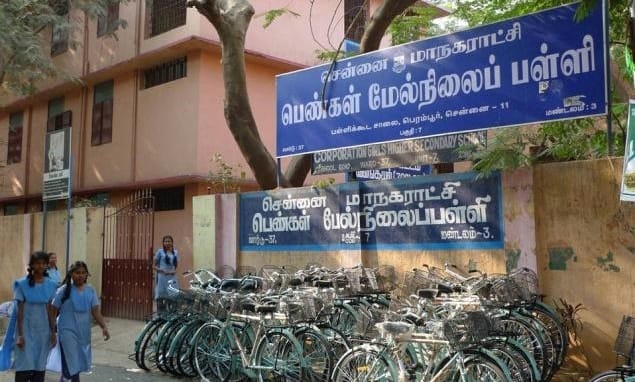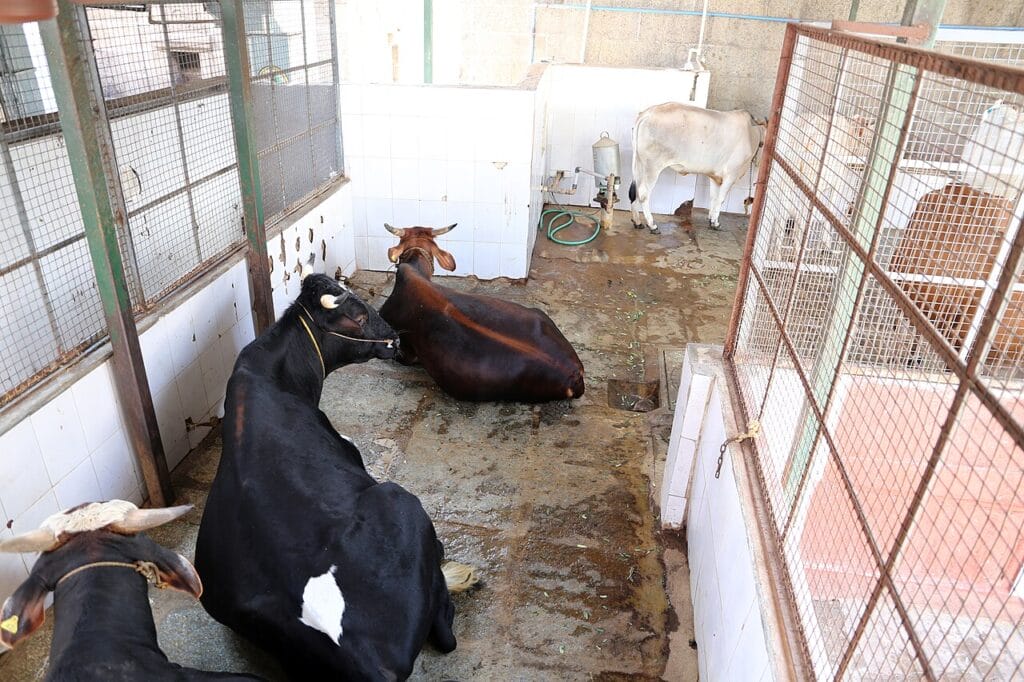The Greater Chennai Corporation (GCC) budget for 2024-2025 was tabled before the council last week. The civic body’s focus in the budget this year is on enhancing physical infrastructure across schools, improving the soft skills of students, upgradation of facilities in health centres across the city and tackling issues with stray dogs and cattle.
The Ward Development Fund for each councillor has also been hiked from Rs 40 lakh per year to Rs 45 lakh. The discretionary fund can be spent by the councillors to fulfil the needs of their ward.
One of the highlights of this year’s budget is the launch of awareness campaigns on source segregation across all 200 wards, with the aim of converting one street across each ward as a model street for segregation of waste at source.
Fiscal health of the GCC
The GCC said that the fiscal deficit has been the lowest in the past five years. The civic body has been able to capitalise on higher property tax to boost its revenue receipts.
Property tax is one of the key sources of revenue receipts for the Greater Chennai Corporation. The revenue generated from property tax for the previous fiscal year stands at Rs 1,680 crore. The budget estimates for this fiscal year project property tax revenue to the tune of Rs 1,750 crore.
Read more: A guide to understanding the revenue and expenses of Chennai Corporation
One source of revenue is professional tax, which is collected twice a year. A sum of Rs 500 crore was generated as professional tax in 2023-2024. The budget estimates that revenue from professional tax will be Rs 550 crore this fiscal year.
Other sources of revenue such as parking charges, subsidy from central and state government building tax are expected to generate Rs 884.60 crore this fiscal year.
Capital expenditure for the GCC will mainly be spent on enhancing bus route roads at Rs 390 crore; improving stormwater drains at Rs 1,321 crore; expenditure on SWM at Rs 210 crore; bridges at Rs 268 crore.
Allocations for special projects under Singara Chennai 2.0, CITIIS, Nirbhaya scheme, Chennai City Partnership project and others stand at Rs 259.50 crore.
At a glance:
| 2023 – 2024 (estimate) (in crores) | 2023-2024(actuals) (in crores) | 2024- 2025(estimate) (in crores) | |
|---|---|---|---|
| Revenue receipts | 4131.70 | 4508.30 | 4464.60 |
| Revenue expenditure | 4466.29 | 4617.27 | 4727.12 |
| Capital receipts | 3554.50 | 3266.53 | 3455.00 |
| Capital expenditure | 3560.16 | 3925.33 | 3140.58 |
Key areas where funds have been allocated
Stormwater drains:
As with every year in the recent past, a large part of the budget has been allocated for the creation of stormwater drains (SWDs) to prevent flooding during monsoons. The Kosasthalaiyar and Kovalam basins will get SWDs at a cost of Rs 1,321 crore with funding from the Asian Development Bank (ADB) and Kreditanstalt für Wiederaufbau (KfW).
Education:
To enhance infrastructure in GCC-run schools, allocations have been made to provide green boards, CCTV cameras and improvement of facilities at skill training institutes. The GCC has earmarked Rs 1.32 crore as imprest (cash account for small expenses) across primary, middle, high and higher secondary schools across all zones, in phases to ensure repair and maintenance of restrooms, plumbing, electrical fittings and fixtures and other works for the upkeep of buildings.
School buses will be procured across all zones at a cost of Rs 1.16 crore. Funds have been earmarked for purchase of school uniforms, shoes and socks, uniforms of students for NCC and Scouts and Guides, and ID cards for students of GCC schools.

The GCC will appoint 10 counsellors to provide counselling for students of Class 6 –12. A sum of Rs 35 lakh has been allocated for this purpose.
Students enrolled in GCC-run schools can avail coaching for sports such as Taekwondo, Karate, athletics, boxing and Judo. An allocation of Rs 30 crores has been made to appoint physical instructors and coaches.
Additionally, funds have been allocated for excursions, setting up of centres for excellence in STEM and skill development centres for students of GCC schools.
Child protection committees will also be set up across all primary and middle schools run by the GCC.
Read more: Inadequate infrastructure and lack of personnel affect learning in Corporation schools in Chennai
Public health:
Physical infrastructure available across the Urban Primary Health Centres (UPHCs) will be enhanced. Generators will be procured for 113 UPHCs at a cost of Rs 5.09 crore. Urban Health and Wellness Centres will get inverters at a cost of Rs 4.20 crore.
A Vector Monitoring Lab will be set up to prevent spread of mosquito-borne illnesses such as dengue, malaria and chikungunya.
UPHCs in Adyar and Kathivakkam will get 10 and 70 additional beds respectively. The Adyar UPHC will also house an operation theatre and a three-storey building equipped with lifts. The emergency care centre in Saidapet will get 70 additional beds at a cost of Rs 7 crore.
Animal control:

To tackle the problem of stray cattle, more workers will be engaged across all zones in the city. Apart from hiring 45 temporary employees, GCC will engage local self-help groups for this purpose. Allocation stands at Rs 1.16 crore. Private individuals will also be issued licences to run cattle grazing sites to deal with the issue of lack of space in the cattle pounds run by the GCC.
Funds have been allocated to enhance the animal birth control (ABC) programme. An additional seven vehicles will be procured for Rs 70 lakh to transport dogs to ABC centres. Mobile veterinary vehicles for vaccination of stray dogs will also be procured for all zones at a cost of Rs 60 lakhs. Two more ABCs will be set up at a cost of Rs 2.50 crore.
Rainwater harvesting:
GCC has set aside Rs 10 crore to rejuvenate eight water bodies and improve their water holding capacity. A sponge park will be set up in Zone 2 at a cost of Rs 8 crore to harvest rainwater.
Parks and recreation:
To improve the facilities available to sportspersons in the city, a mini stadium will be created in Zone 2 at a cost of Rs 5 crore. About Rs 10 crore will be given to set up gyms for women across all 200 wards under the empowHER scheme.
To enhance green cover in the city, the GCC plans to plant 2.50 lakh saplings. Roadside parks along the banks of the Buckingham Canal will be improved with an allocation of Rs 4.33 crore.
Bus route roads:
A total of Rs 390 crores will be used to improve roads and footpaths including relaying of roads. Beautification of areas under flyovers will be carried out at a cost of Rs 2.20 crores.
Bus shelters will be upgraded and repaired across all zones. A total of 765 shelters will be enhanced under a public-private partnership model.
What residents say about the budget
“The focus is on industrial development, upskilling women and storm water drains as well as road laying in the latest GCC budget. But I’m apprehensive about SWDs and road laying, as the previous year’s work on these two has proved to be a total drain of the taxpayer’s money. There seems to be no accountability. Also, in the previous year, SWDs were constructed, in places where it was unnecessary,” says Krithiga Viswanathan, special educator and psychologist, and member of the Kalakshetra Colony Welfare Association (KCWA).
Sivakami R, a resident of Pillayar Koil Street in Triplicane, an area that has sees a high number of stray cattle, welcomes announcements regarding measures taken by the GCC to curb cattle issues. “I am happy they are taking this seriously. We have been affected as cattle make the road dangerous. But at the same time we want them to be treated humanely. More grazing areas must be created by the Corporation. Fines must also be increased for owners who do not ensure safety,” she says.
Amrithaselvi, a domestic worker in T Nagar wishes that more attention is paid to Amma Canteens by the GCC. She says, “The quality and availability of food has reduced over the last few years. I used to depend on the nearby Amma canteen for food as it is cheap. But in recent months, they run out of items many times. The staff has also reduced and care is not taken to keep the premises clean.”